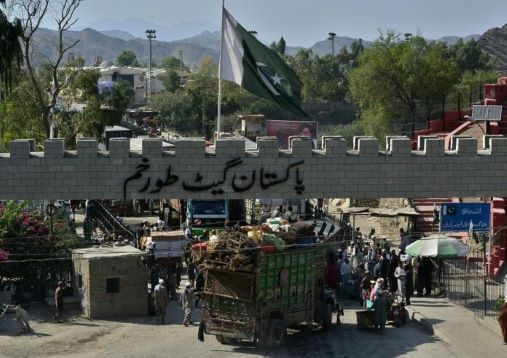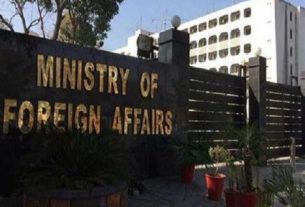The Torkham border between Pakistan and Afghanistan remained shut for the eighth consecutive day on Wednesday, with talks between both sides failing to make any headway.
The extended border closure has halted all trade and foot traffic across it, racking up heavy losses worth an estimated $5 million per day for traders on both sides of the crossing point located on the Durand Line.
The border was shut on September 6 after Pakistan claimed that Afghan border security forces opened indiscriminate fire at them when the former asked them to stop the construction of a checkpost on Pakistani territory. Afghanistan claimed that they were repairing a pre-existing but abandoned checkpost.
The closure of the border has meant that perishable goods transported through this border point, including rice, chicken, vegetables, fruits, medicine, etc., apart from items of daily use, have been stuck at the border.
Background discussions with the authorities on both sides found little optimism over the route’s opening despite the heavy losses incurred by traders on both sides.
Even though Torkham remains closed, other border crossings between Pakistan and Afghanistan, including the Chaman and Ghulam Khan borders, remain open and continue to operate normally. However, those trading through Torkham do not see those border crossings as economically viable.
Talking to The Friday Times, Pakistan-Afghanistan Joint Chamber of Commerce Director Zahid Ullah said that in the last fiscal year 2022-23, the volume of trade between the two countries (imports and exports) stood at $1.8 billion.
Since the suspension of the route, he said that daily losses are estimated at $5 million.
He added that the people most affected by the border crossing were the transporters who could not leave their trucks or the goods and go home. Some of them are stranded in the neighbouring country.
Zahid Ullah said that a large number of heavy trucks are carrying perishable items and that they have been stuck for the past week with all other kinds of trucks on the road leading to the border.
“Shortage of diesel means the trucks cannot run their engines for long to keep their cargo of vegetables, chickens, etc. chilled…uncertainty about dialogue and other factors are creating a lot of problems,” he said.
He added that Asmat Helmand from the Afghan side and law enforcement agencies from the Pakistan side are engaged in talks but have yet to reach any consensus.
When asked about why drivers were not using alternate routes, he said that many stranded drivers were suggested to travel to the Ghulam Khan Border, but it was feasible in the current scenario.
“Torkham is feasible and the main route between two countries,” he maintained.
Talking to The Friday Times, Sarhad Chamber of Commerce and Industry member Shahid Hussain said the stranded trucks are carrying perishable items such as grapes, onions, tomatoes, chicken, rice, medicine and construction material.
He said the closure of the transit route has greatly affected the trade between Pakistan and Afghanistan and beyond, including Uzbekistan and Kyrgyzstan.
Another Pakistan-Afghanistan expert with in-depth insight about the region believed that neither country embroiled in this conflict could afford the closure of a major border point for an extended period.
It may be mentioned here that earlier in the week, Foreign Ministry Spokesperson Mumtaz Zahra Baloch had on Monday accused the Afghan Taliban of building unlawful structures and resorting to indiscriminate and unprovoked firing.
Baloch further repeated claims that Afghanistan had allowed its soil to be used for “terror” attacks on Pakistan, referencing how scores of militants had streamed into Pakistan last week, resulting in a standoff that lasted for three days.
These remarks from Pakistan have apparently infuriated Kabul, with one ministry official strongly reacting to it.
Afghani and Pakistani officials also reportedly traded blame with each other over the closure of a key border crossing.__The Friday Times





